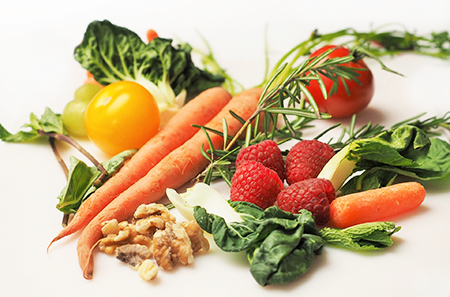A natural antioxidant
- Provides you with healthy bioflavonoids
- Supports good blood circulation
- 40 mg of standardized, patented extract in each tablet
- Made from the bark of French maritime pine (Pinus pinaster)
- Contributes to the protection of cells from oxidative damage
- Clinically documented
| 1 tablet contains | |||
|---|---|---|---|
| Pycnogenol | |||
| Oligomeric proanthocyanidins | 40 mg |
Product Facts
Directions
1 tablet 2 times daily unless advised otherwise.
Do not chew the tablet but swallow it whole, preferably during/after a meal.
Dietary supplements are not intended to substitute a varied diet.
A healthy lifestyle and a balanced diet are important for maintaining good health.
Ingredients
Tablet filler: Microcrystalline cellulose
Anticaking agent: Maltodextrine
Extract of bark from French maritime pine (Pinus pinaster A.)
Coating agent: Hydroxypropyl methylcellulose
Anti-caking agents: Tricalcium phosphate,
Magnesium salts of fatty acids
Storage
Room temperature. Not in direct sunlight
Keep out of reach of children.
What is Bio-Pycnogenol?
 Bio-Pycnogenol consists of 9.5 mm, round, light brown tablets, Each tablet contains 40 mg of a patented extract made from the bark of French maritime pine (Pinus pinaster). Bio-Pycnogenol contains a unique blend of water-soluble, naturally-occurring bioflavonoids and fruit acids, several of which are also powerful antioxidants. Bio-Pycnogenol is a dietary supplement without added nutrients that supports good blood circulation.
Bio-Pycnogenol consists of 9.5 mm, round, light brown tablets, Each tablet contains 40 mg of a patented extract made from the bark of French maritime pine (Pinus pinaster). Bio-Pycnogenol contains a unique blend of water-soluble, naturally-occurring bioflavonoids and fruit acids, several of which are also powerful antioxidants. Bio-Pycnogenol is a dietary supplement without added nutrients that supports good blood circulation.
In the US, pycnogenol products are on the top-10 list of popular supplements. The substance is thoroughly researched and well documented.
What is Pycnogenol?
 Pycnogenol is made from the bark of French maritime pine with the Latin name Pinus pinaster. The trees are cultivated in a 2.5 million-acre plantation in the southwest of France. The wood is used to manufacture furniture. All trees that are cut down are replaced with new saplings, which means the entire production fully sustainable. The huge amounts of bark that is a by-product of the lumber production is used as a raw material to manufacture Pycnogenol, which is an extract of the bark. It takes approx. 1,000 kg of bark to make 1 kg of Pycnogenol. It is important that the bioflavonoids are extracted from the bark within 48 hours after the tree is cut down. No pesticides are used on the wood, and the patented extraction process does not use any toxic solvents.
Pycnogenol is made from the bark of French maritime pine with the Latin name Pinus pinaster. The trees are cultivated in a 2.5 million-acre plantation in the southwest of France. The wood is used to manufacture furniture. All trees that are cut down are replaced with new saplings, which means the entire production fully sustainable. The huge amounts of bark that is a by-product of the lumber production is used as a raw material to manufacture Pycnogenol, which is an extract of the bark. It takes approx. 1,000 kg of bark to make 1 kg of Pycnogenol. It is important that the bioflavonoids are extracted from the bark within 48 hours after the tree is cut down. No pesticides are used on the wood, and the patented extraction process does not use any toxic solvents.
Pycnogenol is made by extracting the outer bark of the pine. The fresh bark is pulverized and extracted with ethanol and water in a patented process. After being thoroughly cleansed, the raw extract is spray-dried and turned into a fine, brown powder. The extract is then standardized to a 70% +/- 5% content of the active plant substances known as procyanidines.
There are many different types of bioflavonoids in Pycnogenol such as catechin, epicatechin, flavones, and taxifolin. Pycnogenol also contains a variety of fruit acids, including caffeic acid, ferulic acid, gallic acid, coumaric acid, and vanillic acid. Both bioflavonoids and fruit acids can be found in other fruits and vegetables, but not in a single plant and not in the same proportions.
Pycnogenol serves as an antioxidant and contributes to protecting the body's cells from oxidative damage.
A very safe extract
Pycnogenol has been on the market for more than 40 years. The substance has been clinically tested in a wide range of scientific studies. Pycnogenol has been labeled GRAS (Generally Recognized As Safe) by independent toxicology experts and is therefore regarded as completely safe for human consumption.
What are bioflavonoids?
 Bioflavonoids or flavonoids belong to superior group of water soluble secondary plant substances containing flavones. They function as plant pigments and antioxidants. Bioflavonoids are found in fruit, vegetables, nuts, seeds, and roots. Bioflavonoids have various health properties similar to those of vitamins. This collective group of compounds was formerly referred to as “vitamin P”. The P stands for “permeability” or penetrability.
Bioflavonoids or flavonoids belong to superior group of water soluble secondary plant substances containing flavones. They function as plant pigments and antioxidants. Bioflavonoids are found in fruit, vegetables, nuts, seeds, and roots. Bioflavonoids have various health properties similar to those of vitamins. This collective group of compounds was formerly referred to as “vitamin P”. The P stands for “permeability” or penetrability.
Ingestion of a sufficient amount of bioflavonoids is considered an important part of a healthy and varied diet.
Official claims
The European Food Safety Authority (EFSA) has evaluated the evidence behind Pinus pinaster (Pycnogenol) and has acknowledged the following claim:
- Pine bark extract (Pycnogenol) contributes to the maintenance of normal blood circulation.

